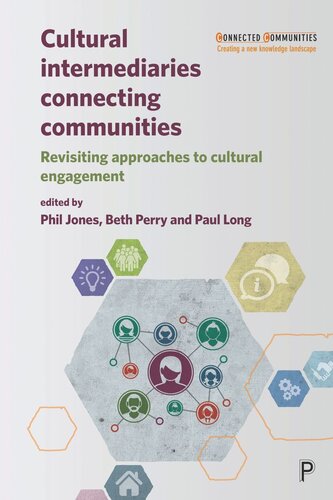

Most ebook files are in PDF format, so you can easily read them using various software such as Foxit Reader or directly on the Google Chrome browser.
Some ebook files are released by publishers in other formats such as .awz, .mobi, .epub, .fb2, etc. You may need to install specific software to read these formats on mobile/PC, such as Calibre.
Please read the tutorial at this link: https://ebookbell.com/faq
We offer FREE conversion to the popular formats you request; however, this may take some time. Therefore, right after payment, please email us, and we will try to provide the service as quickly as possible.
For some exceptional file formats or broken links (if any), please refrain from opening any disputes. Instead, email us first, and we will try to assist within a maximum of 6 hours.
EbookBell Team

4.4
52 reviewsBased on a four-year research project which highlights the important role of community organisations as intermediaries between community and culture, this book analyses the role played by cultural intermediaries who seek to mitigate the worst effects of social exclusion through engaging communities with different forms of cultural consumption and production. The authors challenge policymakers who see cultural intermediation as an inexpensive fix to social problems and explore the difficulty for intermediaries to rapidly adapt their activity to the changing public-sector landscape and offer alternative frameworks for future practice.